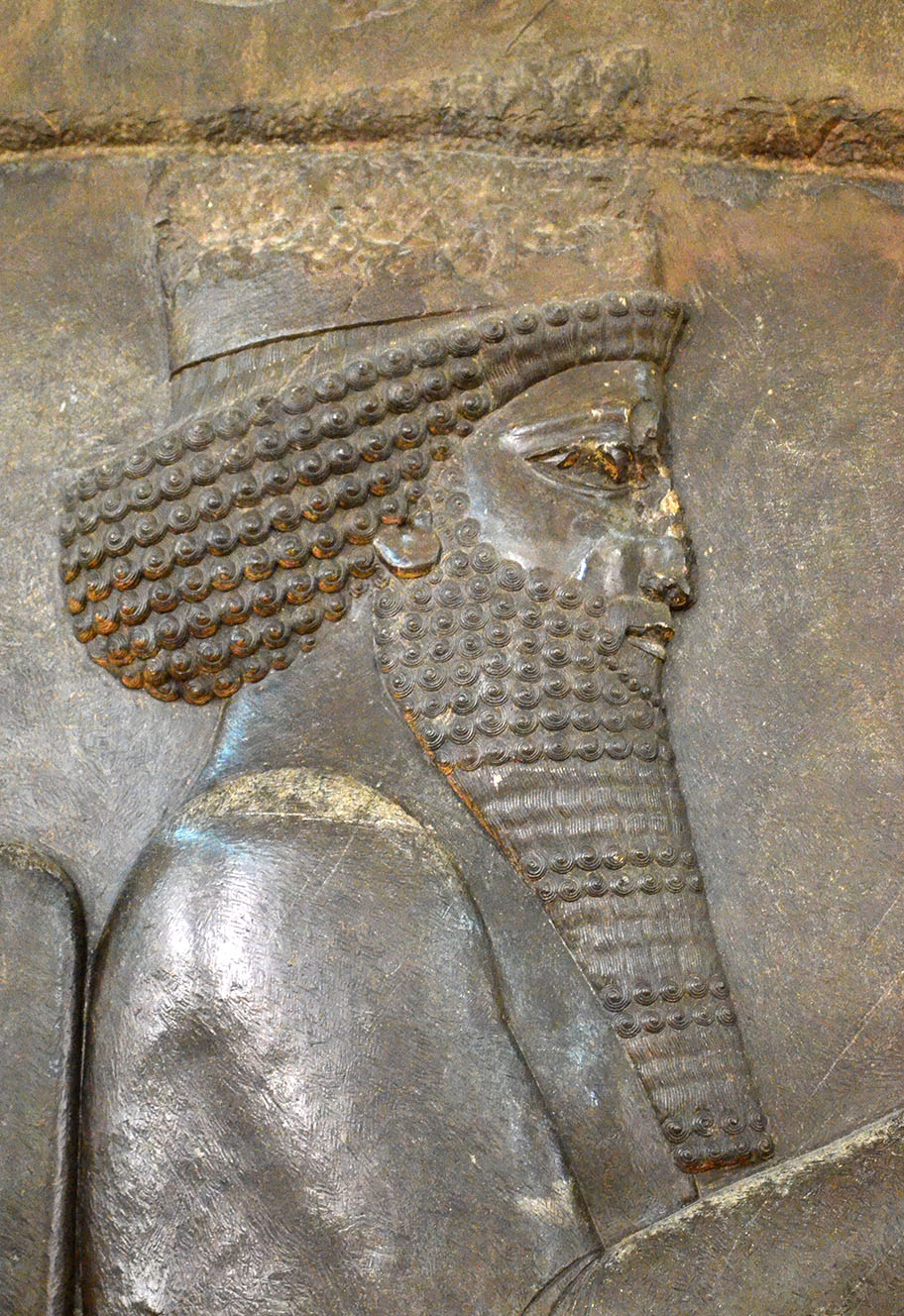Xerxes I
Born:
C. 518 BCE
Died:
465 BCE
Xerxes I, also known as Xerxes the Great, was a Persian king who ruled the Achaemenid Empire from 486 to 465 BCE. He is best known for his ambitious military campaigns, including the failed invasion of Greece, and his extensive building projects. Here are key aspects of Xerxes I's life and contributions:
Early Life: Xerxes was born around 518 BCE, the eldest son of King Darius I and Queen Atossa. He was raised in the Persian court and received an education befitting his royal status. Xerxes was appointed as the governor of Babylon during his father's reign, where he gained valuable administrative experience.
Ascension to Power: Xerxes became king after the death of his father, Darius I, in 486 BCE. His accession to the throne was challenged by several rebellions, which he successfully quelled, consolidating his rule over the vast Persian Empire.
Military Campaigns: Xerxes is best known for his ambitious invasion of Greece in 480 BCE, following in his father's footsteps. His forces famously crossed the Hellespont on a pontoon bridge and marched through Thrace and Macedonia, ultimately facing the Greeks at the Battle of Thermopylae and the Battle of Salamis. Despite initial successes, the invasion ended in defeat, marking a significant setback for the Persian Empire.
Building Projects: Xerxes undertook extensive building projects throughout the Persian Empire, including the construction of grand palaces, irrigation systems, and roads. He expanded and beautified the royal city of Persepolis, adding to its grandeur and splendor.
Religious Policies: Xerxes maintained a policy of religious tolerance, allowing the diverse peoples within the empire to practice their own faiths. He respected the traditions and customs of conquered territories, fostering stability and cooperation among different religious communities.
Legacy: Xerxes I's reign marked a period of both triumph and defeat for the Persian Empire. While his military campaigns in Greece ended in failure, his building projects and administrative reforms left a lasting impact on the empire. Xerxes is remembered as one of the most powerful and influential rulers of the Achaemenid dynasty.

Quick Facts
- Xerxes is best known for his ambitious invasion of Greece, which ended in defeat at the hands of the Greek city-states.
- He undertook extensive building projects throughout the Persian Empire, including the expansion and beautification of Persepolis.
- Xerxes maintained a policy of religious tolerance, allowing diverse religious practices within the empire.
- His reign marked a period of triumph and expansion, as well as significant setbacks in the Persian Empire's history.
Further Reading
Art &
Architecture
Ancient Greek art and architecture, with its harmonious proportions and timeless elegance, continue to inspire awe and admiration millennia later.
Discover
Greek Mythology & Mythical Characters
Greek mythology, a rich tapestry of gods, heroes, and mythical creatures, captivates the imagination with its tales of love, betrayal, and epic adventures that delve into the depths of the human psyche.
Discover
Ancient Greek History
Ancient Greek history, marked by remarkable achievements in democracy, philosophy, and warfare, shaped the foundation of Western civilization, leaving an indelible legacy of innovation and cultural influence that continues to resonate to this day.
Discover
Ancient Greek Olympics
The ancient Greek Olympics, held in Olympia every four years, celebrated athleticism, unity, and cultural pride, serving as a testament to the enduring spirit of competition and excellence that transcends time and borders.
Discover
Ancient Greek Wars
Ancient Greek wars, such as the Persian Wars and the Peloponnesian War, were pivotal conflicts that shaped the course of history, highlighting the struggle for power, independence, and the clash of civilizations in the ancient Mediterranean world.
Discover
Ancient Greek Culture and Society
Ancient Greek culture and society, characterized by its emphasis on art, philosophy, and civic engagement, fostered a vibrant intellectual and social landscape where innovation flourished, democracy thrived, and the pursuit of knowledge and excellence was celebrated as fundamental values of civilized life.
Discover